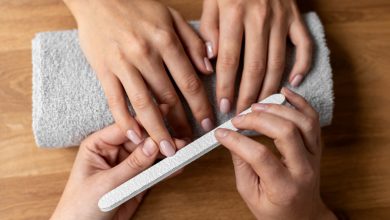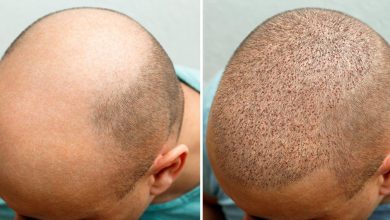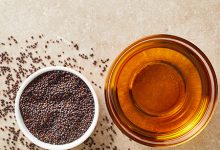Out of the shadows: Physicians share their mental health struggles

Medical doctors typically deal with sufferers in excruciating ache, rush to heal our bodies shredded by gunshots, and ship essentially the most heartbreaking information to sufferers’ kinfolk. Lots of them work lengthy hours below intense strain, striving to remedy ailments and save lives. However docs are human. They endure melancholy, nervousness, burnout — all the identical psychological well being points that different folks face. In reality, they generally endure extra.
One meta-analysis estimated the depression rate amongst medical residents at 29% — whereas the speed amongst nonphysicians was 8%. Physicians die by suicide at twice the rate of the final inhabitants. And in October 2020, 87% of emergency physicians reported feeling extra careworn because of COVID-19, however 45% mentioned they didn’t really feel comfy searching for remedy if wanted.
Quite a few issues discourage struggling physicians from getting assist: licensing worries, fears of misplaced work alternatives, and knowledgeable tradition that means that it’s unacceptable to look “weak.”
However consultants consider searching for care truly makes docs higher suppliers. What’s extra, speaking brazenly about psychological well being struggles can cut back disgrace and promote help-seeking.
“Stigma can value lives, and sharing our private struggles can assist save them,” says Darrell Kirch, MD, president emeritus of the AAMC and co-chair of the Nationwide Academy of Drugs (NAM) Motion Collaborative on Clinician Properly-Being and Resilience.
AAMCNews spoke with 4 physicians about their private psychological well being journeys. These physicians shared tales of melancholy, sexual abuse, substance use, and suicidal ideas. However in addition they described therapeutic, hope, energy, and a dedication to serve sufferers with the best diploma of compassion and the best high quality care.
Childhood trauma, many years of silence
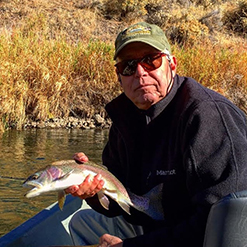
When Darrell Kirch, MD, was 20, he witnessed an excruciating scene.
Kirch, now 73, was engaged on a surveying crew in Colorado’s Rocky Mountains when a 40-passenger aircraft out of the blue crashed into the mountain above. A survivor got here stumbling by means of the bushes, his garments and pores and skin badly charred, and the surveyors rapidly usual a makeshift sling to hold him to security. Then they ran again to the scene to assist others— however to little avail. In the end, 31 passengers perished.
Kirch, who later grew to become a psychiatrist and a frontrunner in tutorial drugs — he served as president and CEO of the AAMC — says that in the present day a psychological debriefing would observe such an occasion. “Again then, this occurred on a Friday, and I simply went again to work on Monday.”
Sadly, that was not the primary trauma Kirch suffered in his early years. As a really younger baby, he additionally skilled sexual abuse by the hands of a trusted grownup.
This revelation specifically is one which Kirch doesn’t make simply. “It’s very uncomfortable,” he says. “However I hope it could actually assist folks.”
The abuse in addition to different components — together with genetics, he believes — led to a variety of psychological well being points, and Kirch coped largely by specializing in attaining tutorial success. Decided to assist others, Kirch was thrilled when he was accepted to the College of Colorado College of Drugs in 1973.
However a serious setback loomed.
Whereas working with cadavers in anatomy class — our bodies harking back to the crash victims — Kirch suffered excessive nervousness, together with intense coronary heart palpitations and hyperventilation. “I felt like I might die,” he remembers.
Kirch went to a medical faculty dean to say he wanted to drop out. As an alternative, the dean inspired him to hunt psychiatric care. Kirch agreed. “I used to be determined,” he says.
“I started to really feel like I needed to be extra forthcoming. I felt that revealing private tales was the one antidote to stigma.”
Therapy helped Kirch go on to a profitable profession. Amongst his quite a few achievements are serving as dean at two medical faculties and co-chairing the NAM’s Motion Collaborative on Clinician Properly-Being and Resilience.
“Drugs and trauma-focused psychotherapy assist me to this present day,” he says.
For practically his whole profession, Kirch saved silent about his struggles. As he was co-leading the NAM work, although, “I started to really feel like I needed to be extra forthcoming,” he says. “I felt that revealing private tales was the one antidote to stigma.”
In reality, Kirch regrets not stepping ahead sooner. “I used to be in a management place, however I didn’t present management on this entrance,” he says, recalling a variety of learner suicides throughout his days as a dean. “I nonetheless take into consideration that.”
Nonetheless, Kirch is deeply grateful for the chance to have an effect now.
“Folks usually inform me … that to have anyone like me be so open was enormously useful,” he says. “It made them really feel inspired to hunt assist and press ahead of their careers, and that’s particularly gratifying to listen to from learners who’ve a lot of their careers forward of them.”
A surgeon steps ahead

“That is terrifying.” These have been among the many first phrases Carrie Cunningham, MD, uttered whereas standing earlier than 2,000 of her friends in February 2023.
Cunningham was presenting her concluding remarks as president of the Affiliation for Tutorial Surgical procedure (AAS) — and she or he was revealing many years of melancholy and nervousness in addition to a current prognosis of a substance use dysfunction.
“I do know that giving this handle in the present day will change my profession path,” mentioned the Harvard College of Drugs affiliate professor. “There shall be individuals who see me as weak, emotional, and broken.”
However, she added by means of her tears, “If I can stop one in all you … from dying by suicide or struggling alone, will probably be price it.”
Cunningham, 50, had lengthy been a powerhouse. As a young person, she was a world-class tennis professional and competed at Wimbledon 5 instances.
However at 17, Cunningham started to expertise a melancholy that may return through the years — through the rigors of residency, for instance. She plowed by means of anyway. “I’m one of many hardest folks I do know, so I figured I may deal with this.”
When an expensive good friend and fellow surgical resident died by suicide in 2012, although, Cunningham knew she wanted assist. After being prescribed antidepressants, “It was like an enormous weight lifted.”
The treatment continued to assist till Cunningham’s marriage resulted in 2021 — she’d been “Dr. Lubitz” for many years however reverted to her maiden title after the divorce — and she or he started a year-long spiral into melancholy.
“I do know that … there shall be individuals who see me as weak, emotional, and broken.”
Cunningham started consuming extra, and after they witnessed her visibly drunk at a colleague’s occasion, pals lastly determined to method her boss.
“I used to be furious,” says Cunningham.
However that intervention started her therapeutic course of. With the assistance of her division management at Mass Normal Hospital, Cunningham quickly related together with her state’s doctor well being program (PHP), the group that gives confidential evaluation and assets for suppliers’ psychological well being remedy.
Then, after in-depth psychiatric testing, she learn the hardest sentence she had ever seen: “The evaluation workforce is of the opinion that Dr. Lubitz is at present not match to observe drugs.”
Cunningham voluntarily agreed to bear three months of intensive remedy. She nonetheless takes a breathalyzer take a look at thrice day by day, and she or he attends a number of remedy and support-group periods each week.
Searching for assist didn’t have an effect on her medical license, and she or he returned to observe after the PHP cleared her.
“I’m the most effective I’ve ever been in my life, and I’m grateful to my pals for serving to me get remedy,” she says.
Alongside the best way Cunningham has realized many classes, together with one in all her favorites, the notion that “self-care is knowledgeable duty.”
Following her AAS remarks, listeners approached Cunningham to ask how they may assist her. She says she had only one request: “Assist one another.”
Stepping again from suicide
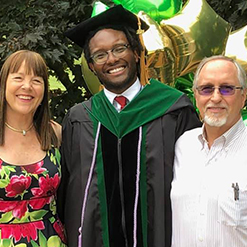
Christopher Veal had a plan. The second-year medical scholar would plow his automotive right into a pole.
That will enable his household to assume his demise was an accident. They might simply consider that, since Burlington, the place he was finding out on the College of Vermont Larner Faculty of Drugs, was thick with snow.
Veal had simply come from a disturbing dialog with a medical faculty dean, having failed a remediation course he was required to take.
If he needed to depart medical faculty, Veal frightened, he would humiliate his household and probably hurt different younger Black folks’s probabilities of coming into drugs.
“I used to be in such ache, I simply wished it to finish,” remembers Veal, now a household drugs resident at Carle Basis Hospital in Urbana, Illinois.
As an alternative, on that stormy evening in 2018, Veal made a telephone name. He contacted his godmother, a doctor who had misplaced her personal son to suicide. “She refused to hold up till I acquired residence safely,” he remembers. That evening, they determined he would take a medical depart of absence.
Veal quickly started cognitive behavioral remedy, work that helped him reshape his darkest ideas. After 4 months, he felt able to return to high school.
Wanting again, Veal now believes quite a few components fueled his suicidal emotions.
As the one Black man in his class, he felt painfully remoted. He additionally felt disconnected from his household after having come out as homosexual, a reality some didn’t settle for kindly. And ADHD made adjusting to medical faculty tough.
As well as, Veal had suffered beforehand with untreated melancholy. “The place I used to be raised, remedy was for White folks,” he says. “You have been supposed to simply push by means of the ache.”
Veal additionally bore a horrible worry of failure. “I grew up in an atmosphere the place failure can have dramatic penalties, like not with the ability to pay your lease or purchase meals,” he says.
“We have to acknowledge that vulnerabilities could make us extra compassionate, and that compassion can assist us enhance the lives of our sufferers.”
Two years in the past, Veal confronted one other turning level. After a fellow scholar died by suicide, Veal felt he needed to shed his silence. He started asking round and located that different college students felt intensely careworn. “It was a shared burden that nobody was speaking about,” he says.
So Veal shared his story in a robust Tutorial Drugs essay. Since then, he’s been contacted by a number of college students who mentioned the piece helped after they have been in a darkish place.
Veal says his journey has highlighted the extent to which drugs is a tradition the place “vulnerabilities are thought-about liabilities,” and he urges leaders and learners to embrace a brand new imaginative and prescient. “We have to acknowledge that vulnerabilities could make us extra compassionate, and that compassion can assist us enhance the lives of our sufferers.”
Caring for carers
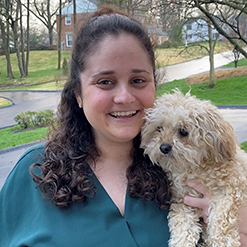
Jessi Gold, MD, MS, had by no means gotten beneath an A in her whole life. However as an undergrad on the College of Pennsylvania, rigorous premed programs challenged her as by no means earlier than.
“Getting a B was actually onerous for me, and folks have been saying you couldn’t get a B and proceed on the trail [to medicine],” remembers Gold, an assistant professor of psychiatry on the Washington College College of Drugs in St. Louis.
Gold, now 35, began skipping lessons, hunkering down in her room, consuming and sleeping extra, and seeing pals much less — a positive signal of bother for the uber-extrovert.
Like lots of her present-day sufferers — she largely treats docs — Gold at first thought she may deal with her points alone.
However then she started to fret about how her depressed temper would possibly have an effect on her grades, so Gold determined to hunt assist on the faculty clinic.
“They instructed me I wasn’t sick sufficient to get care there,” she says. “It was fairly invalidating.”
Gold lastly acquired remedy throughout summer time break, beginning common remedy periods and antidepressants — and she or he has by no means stopped. “I’m so grateful for this care. Life can get onerous, and this helps me get by means of it extra simply.”
Life definitely acquired tougher through the pandemic, and Gold was starting to burn out.
“I couldn’t keep awake after work, and I wasn’t answering texts or calls from pals,” says Gold. She additionally was feeling an outsized anger at work emails or presentation requests. “I felt I had nothing left to provide.”
So she started monitoring her temper extra, holding a journal, and incorporating rituals to shut out the workday as a substitute of carrying its burden into the following one.
“I’m so grateful for this care. Life can get onerous, and this helps me get by means of it extra simply.”
Gold has been pretty open about these and different points of her psychological well being journey — even writing about them on social media and within the widespread press.
However she remained silent about taking treatment. In 2020, for instance, when different suppliers have been revealing their treatment use on Twitter, she shared solely about remedy.
What was occurring?, Gold puzzled. “I spotted that though I believed to my core what I instructed sufferers about treatment, I had internalized a message that my taking treatment meant a larger diploma of sickness.”
So she determined to reveal extra. “I wanted to inform [about medication] as a result of I may see how far we have now to go if somebody like me who you’d assume could be comfy with this, isn’t.”
Gold acknowledges that sharing psychological well being particulars isn’t simple, however she notes that even small adjustments within the tradition could make a giant distinction. “We will simply say to somebody, ‘Immediately was onerous for me. What was it like for you?’”


